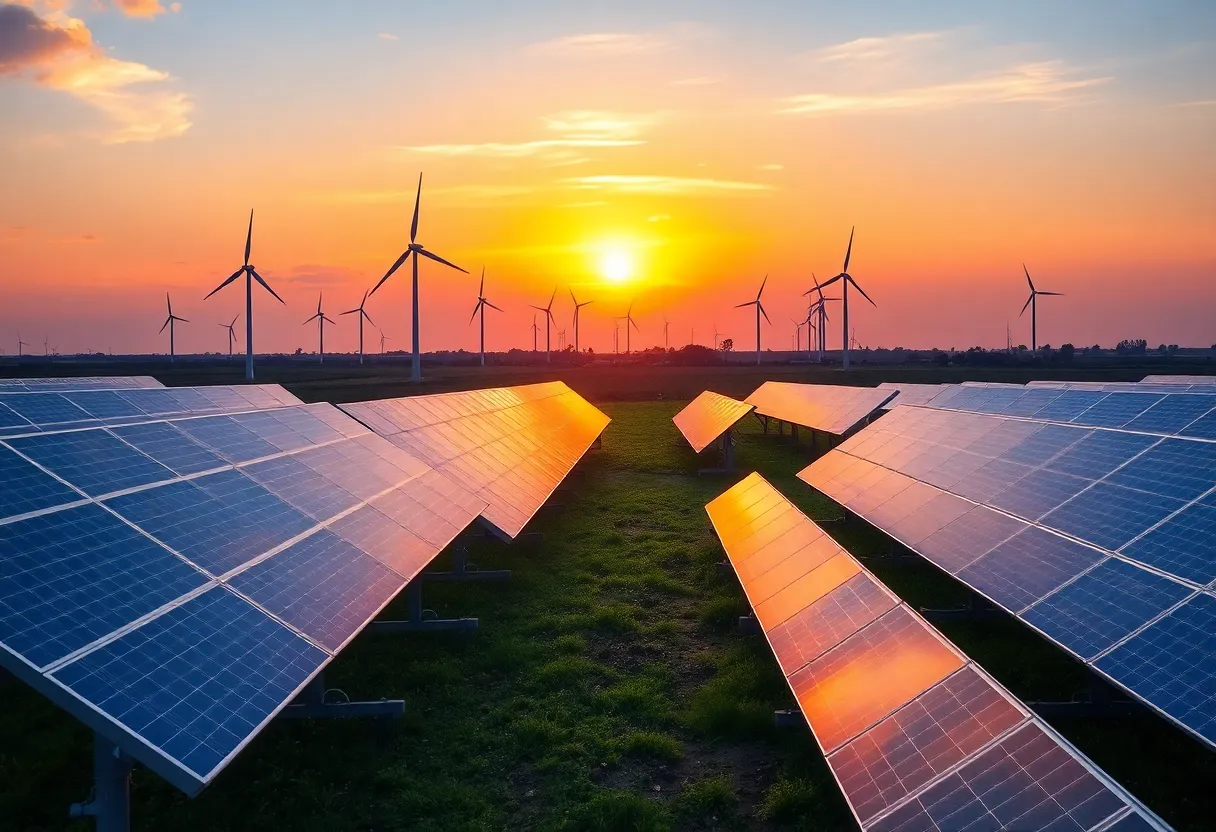News Summary
Under the leadership of Brad Ives, the LSU Institute for Energy Innovation is making significant progress towards a sustainable energy future. Focusing on research in areas such as carbon sequestration, solar energy, and wind power, the Institute aims to facilitate a fair energy transition in Louisiana. Ives emphasizes the importance of environmental justice and partnerships with fossil fuel companies to enhance the transition process. Furthermore, educational initiatives are in place to raise awareness about energy issues among future generations.
BATON ROUGE, Louisiana – LSU’s Institute for Energy Innovation has taken significant strides toward a decarbonized energy future under the leadership of new executive director Brad Ives, who assumed his position in 2023. The Institute, founded in 2020 with a generous $25 million donation from Shell, primarily focuses on energy sector research and innovation aimed at advancing sustainability and reducing carbon emissions.
The Institute has awarded research grants to LSU researchers, who are exploring various pressing issues within the energy sector. Key research areas include the impact of extreme winds on solar systems, evaluation of the risks and benefits of carbon sequestration, identification of optimal locations for wind farms in coastal Louisiana, and the development of new battery storage technologies. This diverse range of studies aligns with the Institute’s overarching goal to transition the energy sector in a manner that is both fair and just.
Brad Ives brings over 30 years of extensive experience to his role, including time spent as a Wall Street lawyer, investment banker, renewable energy executive, and an assistant secretary in North Carolina’s natural resources agency. His varied background positions him well to lead initiatives that intertwine technology, public policy, and economic factors. In a recent interview, he discussed the implications of the “One Big Beautiful Bill Act” on the energy transition, emphasizing the necessity for collaborations within the industry to ensure effective outcomes.
Despite the forward momentum, Ives acknowledges that the energy transition in Louisiana is anticipated to progress at a slower pace compared to other regions. However, he is optimistic about the continuation of solar projects due to their financial viability. Ives also highlighted that the primary drivers of the energy transition are global markets rather than the domestic U.S. market, indicating that European policies, such as the carbon border adjustment mechanism expected to be enforced in 2026, will have a significant impact on Louisiana’s energy sector competitiveness.
Addressing concerns about the Institute’s commitment to a lower carbon future, Ives pointed out that partnerships with fossil fuel companies, exemplified by Shell’s funding, can facilitate progress toward sustainable solutions. He stressed the importance of promoting environmental justice as a core element of the energy transition process, noting that approximately 20% of Shell’s donation is directed specifically towards initiatives in this area. These initiatives aim to address the historical injustices faced by “fenceline communities” in Louisiana, comprising descendants of slaves who live near industrial sites.
Furthermore, Ives is optimistic about Louisiana’s potential to emerge as a leader in the energy sector, citing the state’s industrial resources and current economic activity. He views carbon sequestration as a critical component in minimizing global emissions and is dedicated to ensuring its safe implementation in accordance with environmental standards. In addition, the Institute is actively working to counter misinformation regarding solar energy adoption in the region through focused surveys and community outreach.
As part of its educational initiatives, LSU has recently established scholarships for state teachers aimed at enhancing their understanding of energy fundamentals. This educational outreach signifies the Institute’s commitment to fostering awareness and knowledge about energy issues among future generations.
In summary, the LSU Institute for Energy Innovation, under Brad Ives’ leadership, is poised to advance the transition toward a sustainable energy future through targeted research, community engagement, and educational efforts. By addressing environmental justice and forging key industry partnerships, the Institute aims to make meaningful progress in decarbonizing the energy sector in Louisiana and beyond.
Deeper Dive: News & Info About This Topic
- NOLA: LSU’s Brad Ives Says Louisiana Poised for Energy Renaissance
- Wikipedia: Energy in Louisiana
- 1012 Industry Report: Newlab Launches an Energy Innovation Hub in Louisiana
- Google Search: Louisiana energy innovation
- Biz New Orleans: Fuel Awards Six Groundbreaking Energy Innovation Projects
- Google Scholar: Energy innovation Louisiana
- Business Report: Industry Leaders to be Spotlighted in New Louisiana Energy Awards
- Encyclopedia Britannica: Energy Transition
- WGNO: Energy-Focused Innovation Hub Coming to New Orleans Bywater Neighborhood
- Google News: Louisiana energy awards

Author: STAFF HERE NEWORLEANS WRITER
The NEW ORLEANS STAFF WRITER represents the experienced team at HERENewOrleans.com, your go-to source for actionable local news and information in New Orleans, Orleans Parish, and beyond. Specializing in "news you can use," we cover essential topics like product reviews for personal and business needs, local business directories, politics, real estate trends, neighborhood insights, and state news affecting the area—with deep expertise drawn from years of dedicated reporting and strong community input, including local press releases and business updates. We deliver top reporting on high-value events such as French Quarter Festival, New Orleans Jazz & Heritage Festival, and Essence Music Festival. Our coverage extends to key organizations like the New Orleans Chamber of Commerce and Greater New Orleans, Inc., plus leading businesses in energy, healthcare, and education that power the local economy such as Entergy, Ochsner Health, and Tulane University. As part of the broader HERE network, including HEREShreveport.com, we provide comprehensive, credible insights into Louisiana's dynamic landscape.

